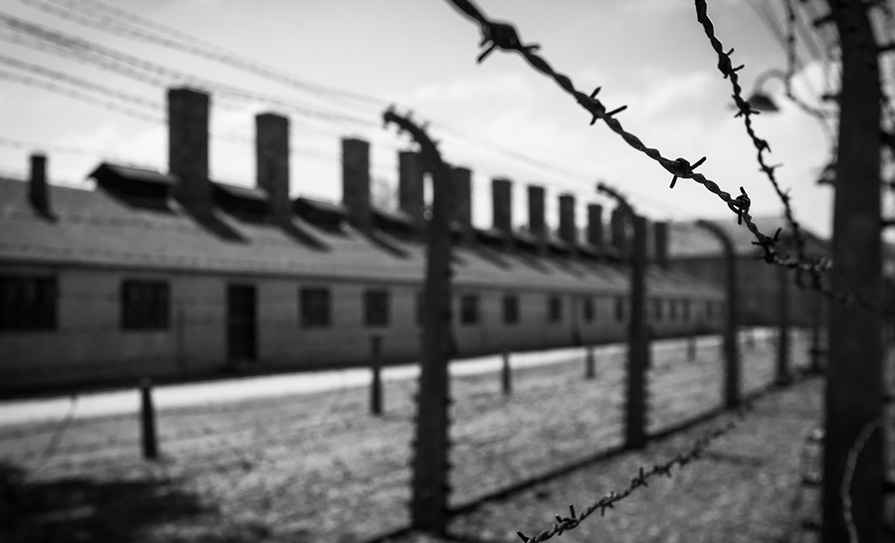
It is a myth that only a few fanatical physicians committed medical atrocities during the genocide
At first glance, the Holocaust may not seem hugely relevant to current medical education. But a recent conversation with Dr Hedy Wald, a psychologist and medical educator from Brown University in the US, soon disabused me of that notion.
The liberation of the concentration camp at Auschwitz on 27 January 1945 revealed many horrors. Among them were the atrocities perpetrated by doctors. Dr Wald notes that these weren’t just a few “bad apples”, who knowingly harmed thousands of people in Auschwitz and other death camps.
“To understand what happened, and how it happened, it’s important to look at the entire tree from which the apples came: Medicine, public health, and biomedical research in Nazi Germany involving doctors, nurses, midwives, and many others, and encompassing disciplines such as psychiatry, neurology, neuropathology, anatomy and physiology, infectious diseases, surgery, genetics and twin research, and beyond,” Dr Wald and her co-authors, writing in the online journal StatPlus, say.
“Although Josef Mengele was the best known of these morally corrupt physicians, he was certainly not alone. Many of them continued in their academic and clinical work after the war, in Germany and abroad. They did so supported by a pervasive silence about their history.”
Writing in The Lancet, the editor Richard Horton states that doctors were centrally complicit in the Holocaust. “Their collusion was such an extreme perversion of a physician’s professional ethics that this very fact must be part of the repertoire of knowledge for every prospective doctor. Medicine drove the incremental advance towards genocide. The idea of life unworthy of life. Compulsory sterilisation. The euthanasia programme. And eventually genocide itself – a killing project led by doctors.”
In a piece titled ‘Holocaust education – a medical imperative’, he writes that we cannot begin to understand the purported moral basis of medical research in the 21st Century without understanding the Nuremberg Code. And one cannot understand the Nuremberg Code without understanding the Holocaust.
He argues that including the Holocaust in the medical curriculum would provide an opportunity to reflect on the role of the doctor in society. “The idea of medical professionalism is based on a moral contract between the doctor and the individual patient in society. But for Nazi doctors during the Holocaust, individuals had no meaning whatsoever. The underlying idea of Nazism was that society was an organic entity where the individual was subordinated to the body politic. The doctor’s duty was to serve the body politic, not the individual.”
The Lancet has set up a Commission titled ‘Medicine and the Holocaust: Historical evidence, implications for today, teaching for tomorrow’. Due to report sometime later this year, its members argue it is necessary because of both the decades-long post-war refusal of the medical community to engage with this history and the long-standing myths about the relationship between the Nazi regime and medicine. Among these myths are that only a few fanatical physicians committed medical atrocities and that all other German and Austrian physicians and medical scientists were coerced by the Nazi regime.
One of the Commission’s objectives is to identify areas vulnerable to abuse of power and unethical actions in current medical practice, research, and health policies. It also plans to evaluate existing medical curricula and propose educational approaches that promote ethical conduct, compassionate identity formation, and moral development. In what I think will be fundamental to its outcomes, the Commission aims to provide evidence-based historical knowledge and insights for relevant self-reflection in medicine. By using the Holocaust to critically examine the values and anthropological assumptions of medical thought and practice, it hopes to explore the inherent fallibility of physicians and the social and political contexts in which health professionals act.
Dr Wald is a member of The Lancet Commission on medicine and the Holocaust. She believes the Commission work will be impactful. During a recent visit here, Dr Wald gave a talk to NCHDs at St James’s and Tallaght Hospitals on the “legacy of medicine during the Holocaust and its contemporary relevance”. This was facilitated by the medical faculty at Trinity College Dublin and is a welcome first step in placing this important topic on the Irish medical education agenda.
Dr Wald says we need to reflect on these issues in the context of current health and other societal crises now underway: Such as the political divisions and right-wing extremism that pose an immediate threat to democracies around the world; the rising tide of antisemitism; and the existence and continued risk of mass atrocities around the globe, which create significant public and mental health issues.





Leave a Reply
You must be logged in to post a comment.